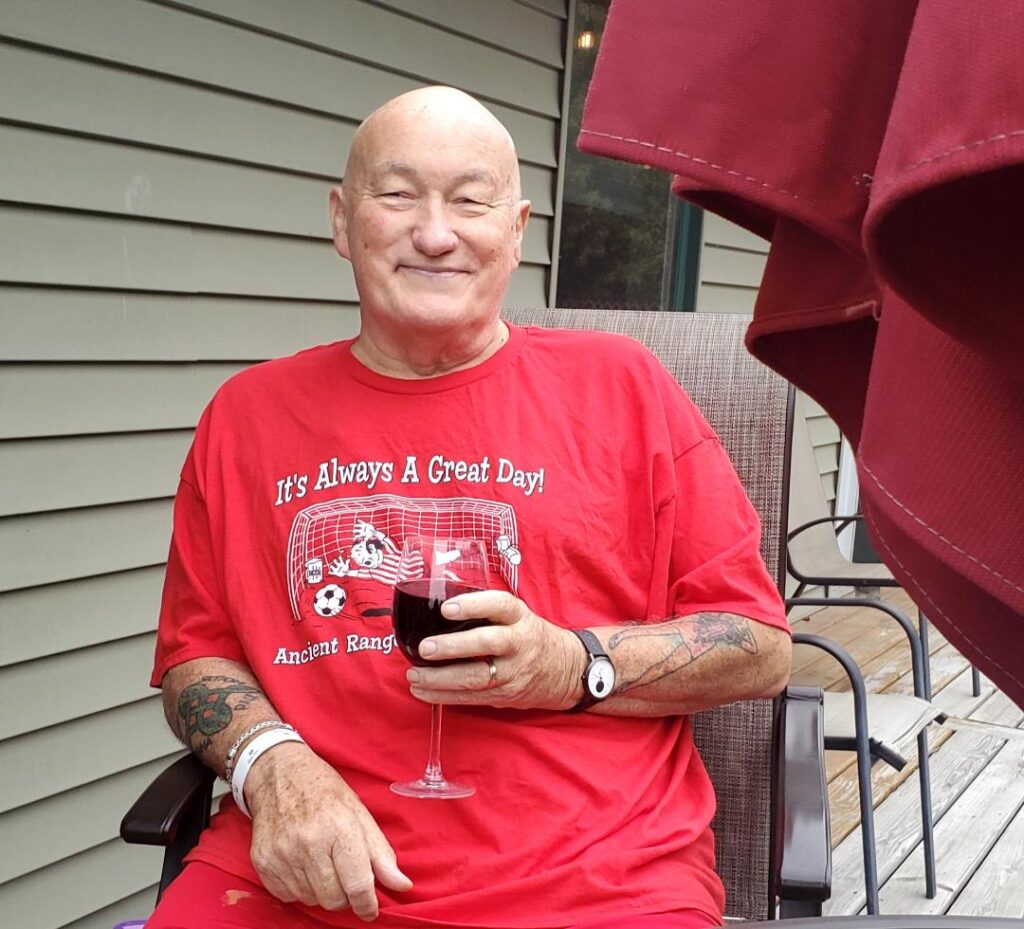“It was an ideal choice and I’d definitely recommend it.”

Patients receiving chemotherapy often experience side effects that complicate the course of their treatment. In Barrie’s case, his first cycle of chemotherapy created a common problem: a weakened immune system. As a result, he found himself in the emergency room at his local hospital after the last day of his chemotherapy treatment for the week.
“I was showing some of the symptoms the doctors told us to be aware of after chemotherapy,” Barrie recalls. “I just started feeling weird.”
It turned out that he was experiencing an abnormal heart rhythm— atrial fibrillation with rapid ventricular response— and his compromised immune system had led to a case of pneumonia. Thankfully, after four nights in the hospital, Barrie was doing much better. The only lingering issue was his kidney function, which had also required some treatment.
Between management of that and ongoing medication adjustments for his heart rate, Barrie says, “Basically, the last couple of days I was there, it boiled down to me lying in a hospital bed while they took blood samples and adjusted my medication.” So, when a Recovery Care Coordinator (RCC) explained to him that there was an opportunity for him to return home to finish his care, he was thrilled.
Home to complete hospital care
The RCC explained the history of Recovery Care at Home, and how it helped patients receive hospital-level care at home during the COVID-19 pandemic. “I had the opportunity to either stay in the hospital or finish my care at home,” Barrie says. “And I said, ‘sure, I’d rather be at home doing this!’”
Barrie explains that he was still considered a hospital patient and hadn’t been released from their care but was able to return home with his wife for continued monitoring and treatment. “I was completely dumbfounded by the care,” he says. “When we left the hospital, there was a box made up of everything I needed to self-monitor, such as blood pressure, blood oxygen, a scale and a tablet for doing calls to the doctor.”
But he wasn’t on his own, either. That morning, staff with the Recovery Care at Home program arrived to continue his hospital care. “They had all the equipment there to take blood, and there was a courier outside who took the samples to the hospital. While we were waiting for the results, they set up a virtual call with the doctor. At one point, four of us sat around the table on a call to three different people. And then they said, ‘we’ll be back this afternoon!’”
The benefits of returning home for care
Barrie shared that returning home to complete his hospital care was a great experience. “It lasted for three days, and it was just fantastic,” he said. He feels the decision to accept care with the program was an easy one. “When it was explained to me how the program came about, it just makes so much sense,” he said. “It frees up a hospital bed for someone who’s in a worse position than you are.”
He also appreciated the way the opportunity was presented to him: “There was no pressure put on me— I could either stay or leave. I knew what they needed to do could be done at home. It was a no-brainer to come home.”
Once he was back in his own home, Barrie noticed something. “I didn’t notice changes physically,” he says. “But I think mentally you’re in a happier place. At the hospital, you’re stuck in a hospital bed, your entertainment options are limited and you’re away from your family. Whereas being at home, you’re in a comfortable environment and you have the ability to interact with the people around you.”
An “ideal choice” and improved health
Ultimately, Barrie’s condition improved further, and he was discharged from the program. “Everything they did at home was identical to what they would have done in the hospital,” he recalls. Although he understands not all patients will qualify to receive care at home, he says, “Looking at it from my position, it was an ideal choice and I’d definitely recommend it.”
He notes he was especially impressed with the professionalism of the staff providing care, and the ease of participating in the program. “There isn’t anything I can look back on and be critical of,” he adds. Although he hopes the rest of his chemotherapy treatment is smooth sailing, should he need hospital-level care again, Barrie says, “To my way of thinking, if you can be home, it will always trump being in the hospital.”
